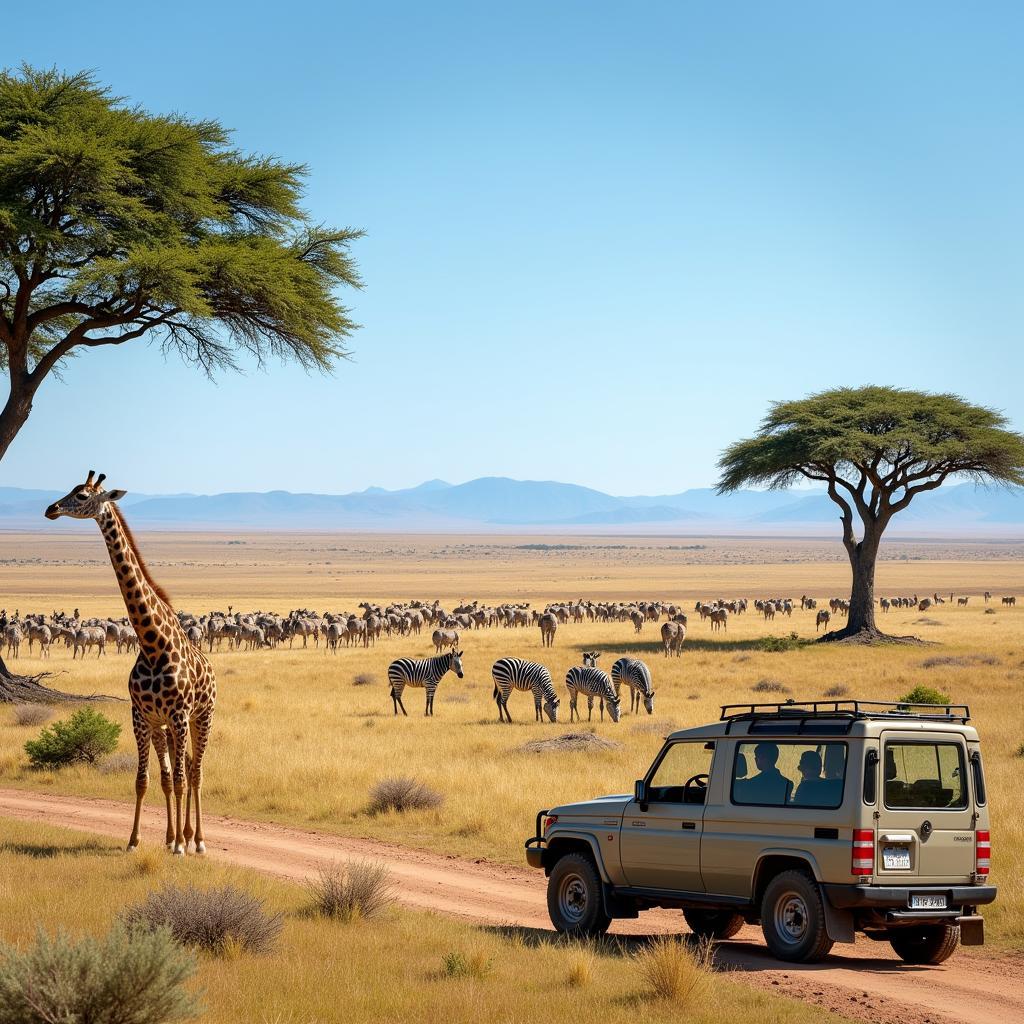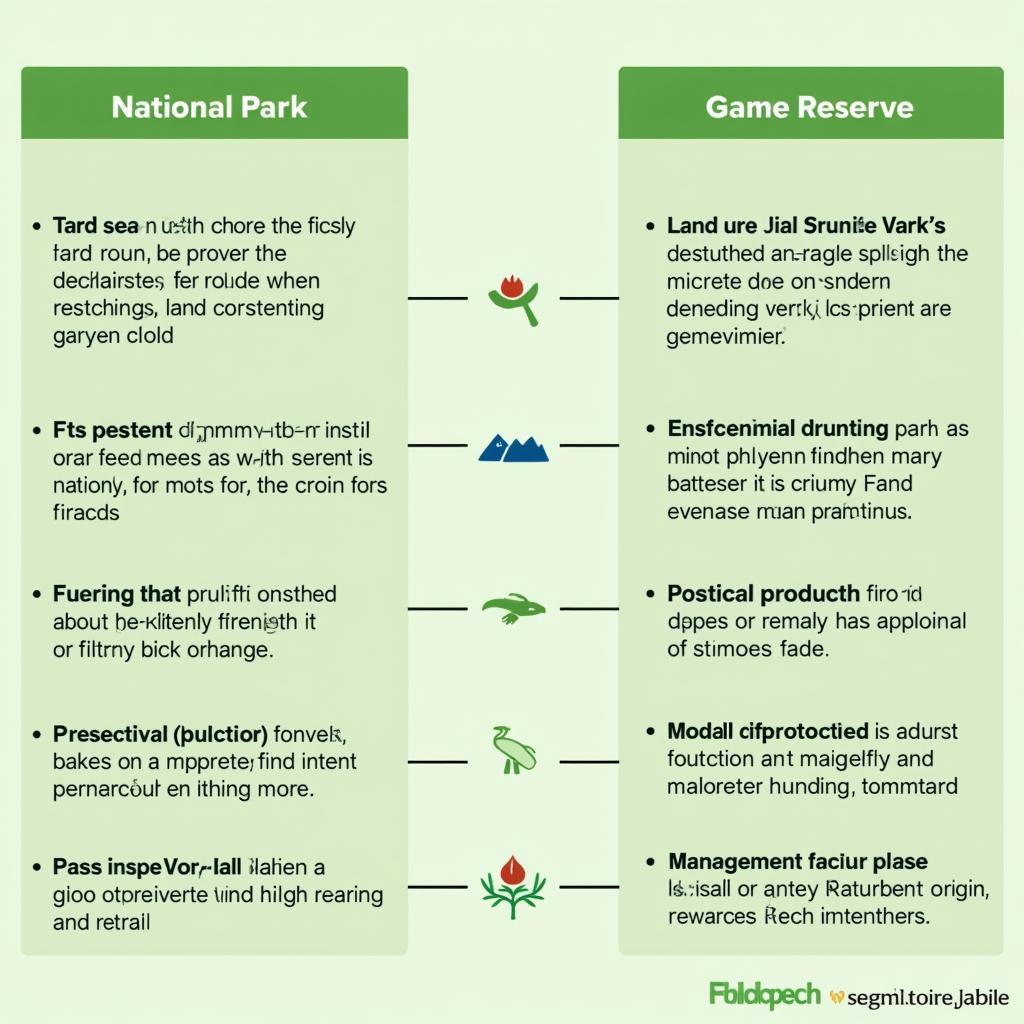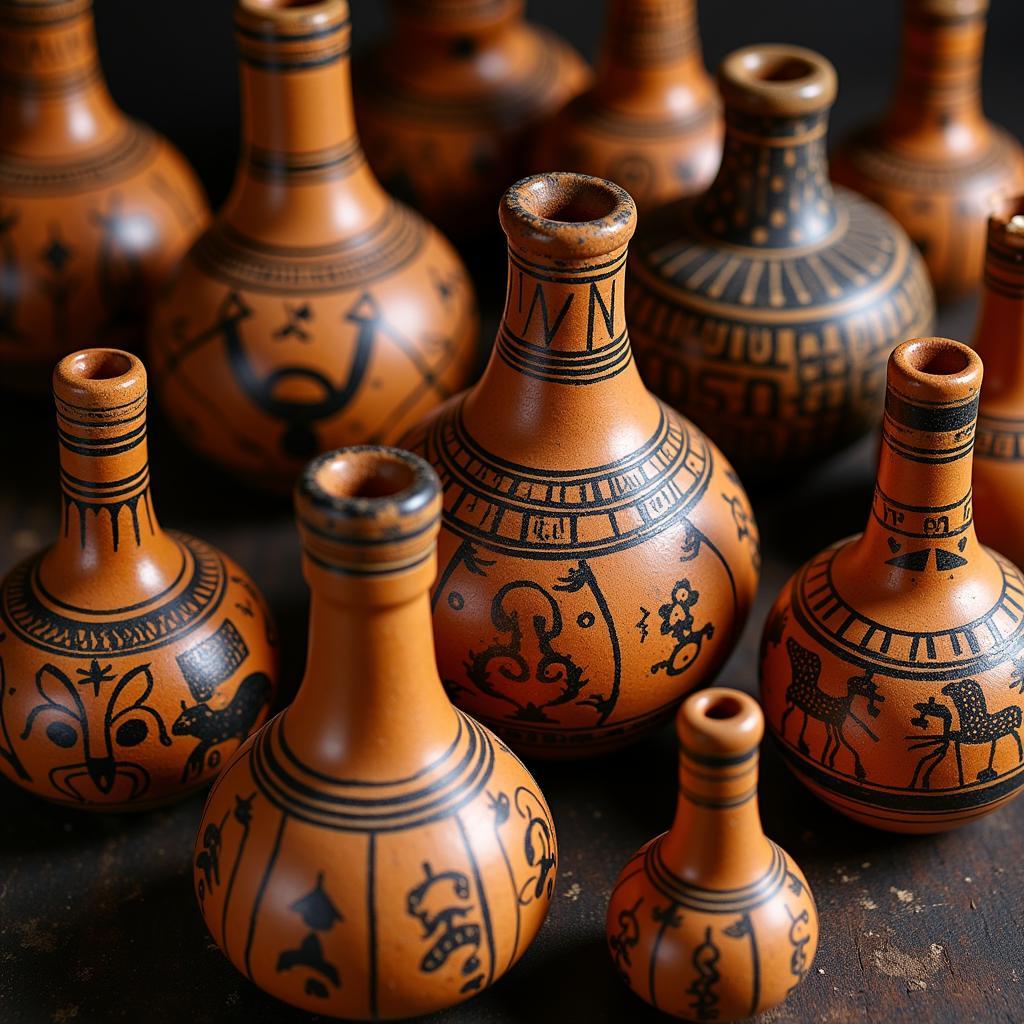Exploring African Game Reserves and National Parks
Africa, a continent teeming with biodiversity, offers a wealth of experiences for wildlife enthusiasts. African game reserves and national parks provide sanctuary to an incredible array of animals, from the majestic lion to the elusive leopard. These protected areas are essential for conservation and offer unparalleled opportunities for visitors to witness nature’s wonders firsthand.
The Importance of African Wildlife Conservation
Protecting Africa’s wildlife is crucial for maintaining the delicate balance of the ecosystem. These parks and reserves play a vital role in preserving biodiversity, preventing habitat loss, and combating poaching. They are also significant contributors to local economies through tourism and create jobs for communities living around the protected areas. Many organizations are working tirelessly to ensure the survival of endangered species and maintain the integrity of these natural habitats. Initiatives like anti-poaching patrols, community education programs, and wildlife monitoring are essential components of conservation efforts.
Check out more about South African wildlife. about south african wildlife
Planning Your Safari Adventure in African Game Reserves and National Parks
Planning a safari to one of Africa’s many game reserves or national parks can be an exciting but daunting task. From choosing the right location and time of year to selecting accommodation and activities, there are many factors to consider. Researching different parks and their specific wildlife populations is crucial to ensure you have the best possible experience. Do you want to see the Great Migration in the Serengeti or track gorillas in Rwanda? Each park offers unique experiences and requires careful planning.
 African Game Reserves Wildlife Safari Experience
African Game Reserves Wildlife Safari Experience
What is the Difference Between a Game Reserve and a National Park?
While often used interchangeably, “game reserve” and “national park” have distinct meanings. National parks are strictly protected areas focused on conservation and preserving the natural environment. Game reserves, on the other hand, may allow some controlled hunting or other activities alongside conservation efforts. Understanding these differences can help you choose the right destination based on your interests and ethical considerations. For example, if you’re strictly interested in wildlife viewing and photography, a national park is likely a better choice.
 African National Park vs. Game Reserve: Key Differences
African National Park vs. Game Reserve: Key Differences
Top African Game Reserves and National Parks to Visit
Africa boasts a diverse range of parks and reserves, each offering a unique wildlife experience. Kruger National Park in South Africa is renowned for its Big Five sightings, while the Serengeti National Park in Tanzania offers the spectacle of the Great Migration. Other notable destinations include the Maasai Mara National Reserve in Kenya, Chobe National Park in Botswana, and Etosha National Park in Namibia. You can even find resources about African animals for children. african animals for children
What are the best African animal names and images? african animal name with image
Tips for an Unforgettable Safari Experience
- Respect wildlife: Maintain a safe distance and avoid disturbing the animals.
- Hire a knowledgeable guide: A local guide can enhance your experience and provide valuable insights into the local ecosystem.
- Pack appropriately: Light clothing, comfortable walking shoes, and a hat are essential.
- Be patient: Wildlife sightings are not guaranteed, and patience is key to a rewarding safari.
Experience the Magic of African Game Reserves and National Parks
From breathtaking landscapes to incredible wildlife encounters, African game reserves and national parks offer an unforgettable experience. By choosing to visit these protected areas, you contribute to their vital conservation efforts and support local communities. So, plan your adventure today and witness the magic of Africa firsthand. More information about an African guest Kenya safari can be found here. african guest kenya safari
FAQ
- What is the best time to visit African game reserves? The dry season (typically June to October) is generally the best time for wildlife viewing.
- What should I pack for a safari? Pack light clothing, comfortable shoes, sunscreen, insect repellent, and a hat.
- Are safaris safe? Yes, safaris are generally safe when following park regulations and guidelines.
- Can I drive myself in a game reserve? Self-drive safaris are possible in some reserves, while others require a guided tour.
- What is the cost of a safari? Safari costs vary depending on location, duration, and accommodation choices.
- What animals can I expect to see? The specific animals vary depending on the location, but you might see lions, elephants, giraffes, zebras, and many more.
- What is the difference between a game drive and a walking safari? A game drive involves viewing wildlife from a vehicle, while a walking safari allows you to explore the bush on foot with a guide.
Further Questions
- What are the different types of accommodation available in game reserves?
- What are the ethical considerations of visiting game reserves and national parks?
- How can I contribute to wildlife conservation efforts in Africa?
For more captivating African lion pictures, check out this link. african lion pictures
If you need any assistance, please contact us at Phone Number: +255768904061, Email: kaka.mag@gmail.com or visit our address: Mbarali DC Mawindi, Kangaga, Tanzania. Our customer service team is available 24/7.

